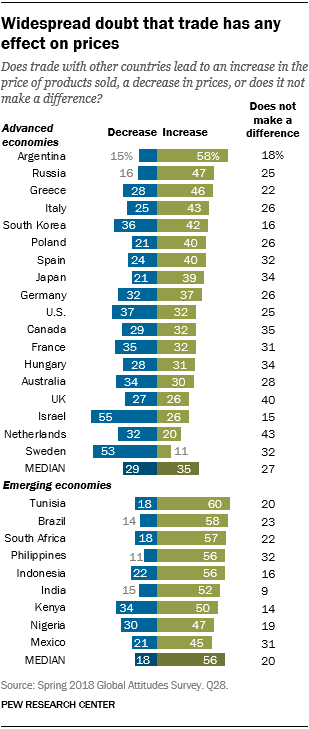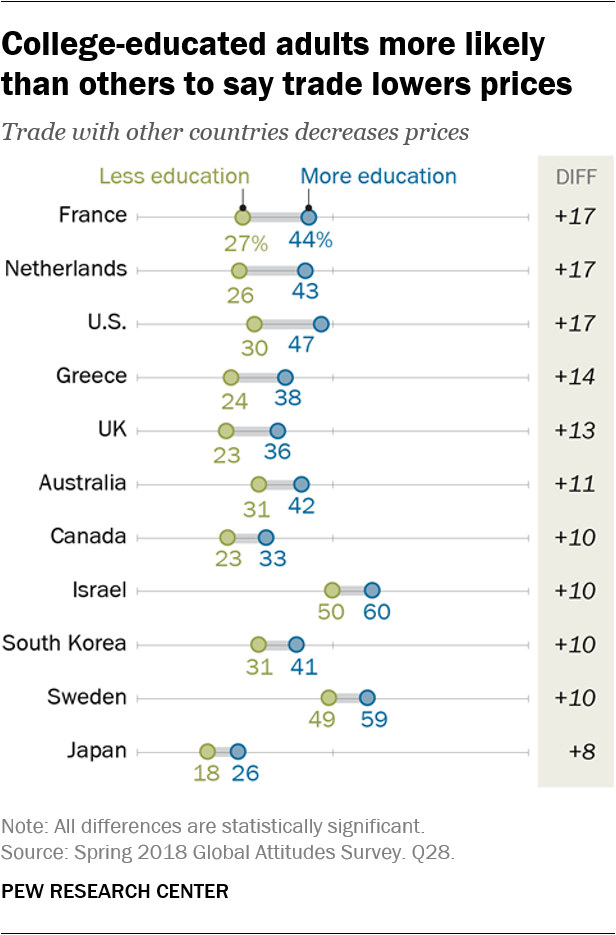 It is a fundamental principle of modern free-market economic theory that trade enhances competition and thus enables consumers to enjoy lower prices than they would have to pay if they depended solely on domestic production of the goods and services they consume.
It is a fundamental principle of modern free-market economic theory that trade enhances competition and thus enables consumers to enjoy lower prices than they would have to pay if they depended solely on domestic production of the goods and services they consume.
But in only two of the 27 nations surveyed –Israel and Sweden – does half or more of the public believe that trade decreases prices. In eight countries, half or more of adults say trade increases prices. Notably, publics in 25 nations believe that trade either increases prices or makes no difference in domestic price levels, sentiments contrary to what most economists claim.
In six of the 27 countries surveyed, young people, those ages 18 to 29, are significantly more likely than those ages 50 and older to think trade lowers prices. The most notable are again in Sweden, where there is a 21-percentage-point difference between young people’s views and those of their elders, and the Netherlands, where the difference in views between age groups is 27 points.
 In 9 of 27 nations men are more likely than women to believe that trade contributes to lower prices. But only in Sweden does that represent a majority of men.
In 9 of 27 nations men are more likely than women to believe that trade contributes to lower prices. But only in Sweden does that represent a majority of men.
In 11 of the countries, those with a higher level of education are more likely than those with less education to believe that trade lowers prices. Yet even then, only in Israel and Sweden do majorities of adults with a higher level of education say that international trade decreases prices.


